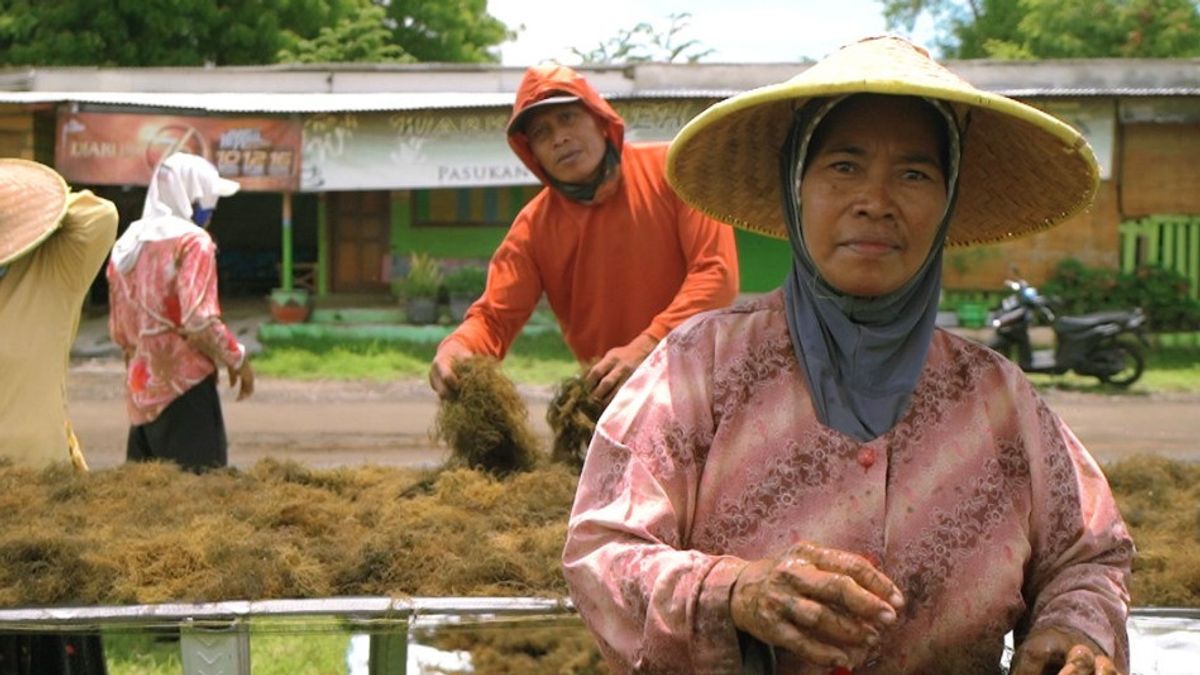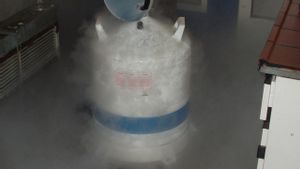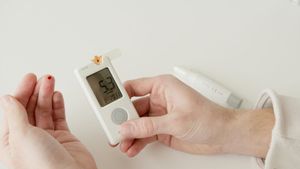JAKARTA - The Indonesian Export Financing Agency (LPEI) or Indonesia Eximbank inaugurated the first Seaweed Foreign Exchange Village Program in Indonesia in Kupang Village, Sidoarjo, East Java on 18 December. The availability of raw materials for Indonesian seaweed has the potential to meet the needs of processed seaweed products for various industries in the world, both food and non-food.
Kupang village which produces seaweed, milkfish and shrimp has red seaweed as commodity Gracilaria Sp. as a village commodity. Red seaweed is known to have benefits as a thickener and gelling agent for the production of agar, collagen, carrageenan and alginate for the industrial sector/food and beverage sector.
The Seaweed Foreign Exchange Village Program located at Sumber Mulyo Cooperative 5758, Kupang Village, Jabon District, Sidoarjo Regency, East Java, is the 27th foreign exchange village fostered and inaugurated by LPEI. Thus, as many as 2,894 farmers/weavers/craftsmen have benefited from this Foreign Exchange Village Program.
Strategic area by considering geographical aspects, tropical climate and located in shallow waters, making seaweed cultivation a prima donna commodity for the local community. The average production of seaweed reaches 10,113 tons per year or 1.4 percent of the total seaweed production in East Java.
The inauguration was attended by the Managing Director II of the LPEI/Indonesia Eximbank, the Head of the Sidoarjo Regency Fisheries Service, the Sidoarjo Cooperatives and UKM Service Head, the East Java Provincial Fisheries Service Head, the Indonesian Seaweed Association and witnessed by members of Commission XI DPR RI.
"LPEI has prepared an integrated and integrated program to build and increase the capacity of seaweed farmers, members and administrators of the Sumber Mulyo Cooperative," said LPEI/Indonesia Eximbank II Managing Director, Maqin U. Norhadi in his remarks, quoted Monday, December 20. .
The forms of training and assistance provided by LPEI include cooperative management, cultivation and processing techniques, marketing, expansion of market access, export licensing, certification, and preparation of financial reports. By producing an export standard product, it is hoped that it will have added value for seaweed farmers in Kupang Village and in turn, the improvement of welfare and the economy will also be felt by the surrounding community.
In the inauguration of the Seaweed Foreign Exchange Village, Maqin emphasized that LPEI as the Ministry of Finance's Special Mission Vehicle (SMV) has a mandate to be able to assist government programs through national export financing provided in the form of financing, guarantee and insurance as well as consulting services. This aims to improve competitiveness, quality of products and services made in Indonesia to enter the global market.
"In 2020, the production of members of this cooperative will reach 4,800 tons or the average production of each member of the cooperative reaches 6.8 tons per year. By participating in the LPEI Foreign Exchange Village Program, as many as 59 seaweed farmers are currently members of the Sumber Cooperative. Mulyo 5758 Kupang Village, will be able to increase production and be ready to become an independent seaweed exporter in the next year," explained Maqin.
Currently, the products sold by the cooperative are in the form of dried seaweed to fulfill orders from local buyers/companies, but among them there are buyers who have exported (suppliers to exporters). The seaweed will be processed into flour and exported to European and East Asian countries.
"With the support, guidance, and guidance from LPEI, the seaweed business in Kupang Sidoarjo Village can hopefully continue to grow. We are targeting that by 2022 we will be able to export ourselves," said Member of Commission XI DPR RI, Indah Kurnia.
Synergy and collaboration of Indonesia Eximbank with other institutions, banks, including the Indonesian Seaweed Association to improve production quality and help find markets abroad.
"This seaweed is an extraordinary natural blessing, and can provide prosperity and welfare for the residents here because in achieving the goal of independent exports, the management cannot do it alone, the members cannot do it alone, so it is necessary to harmonize orchestration and collaboration in achieving these goals, just like a TEAM - Together Everyone Achieve More," said Indah Kurnia.
The English, Chinese, Japanese, Arabic, and French versions are automatically generated by the AI. So there may still be inaccuracies in translating, please always see Indonesian as our main language. (system supported by DigitalSiber.id)








